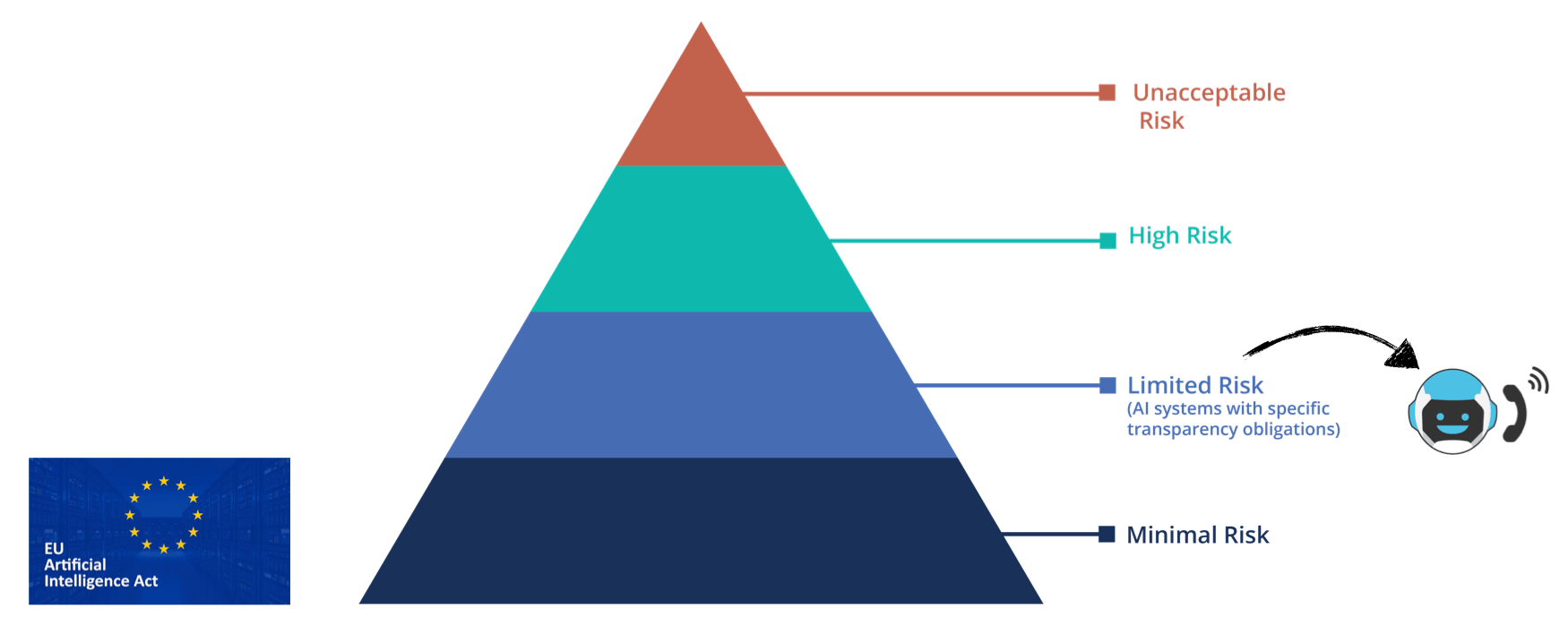Under the EU AI Act, Orion Intelligence, positioned at the "Limited risk" level, must adhere to specific transparency obligations. These requirements ensure that the AI systems, including voicebots, are used in a manner that is open and understandable to users. For Orion Intelligence, transparency means clearly communicating the nature and purpose of their AI systems, ensuring that users are aware when they are interacting with AI rather than a human. This obligation helps build trust and accountability, aligning with the EU's goal of making AI safe, transparent, and traceable.
How Orion Intelligence Addresses Transparency Requirements
- Disclosure of AI Interaction: Users are explicitly informed when they are interacting with an AI system, ensuring they are aware they are not communicating with a human.
Purpose Explanation: The specific purpose of the AI system is clearly explained to users, allowing them to understand the intent and limitations of the voicebot services.
Data Use Transparency: Information on how user data is collected, stored, and processed is provided, ensuring compliance with data privacy regulations and building user trust.
Reporting and Accountability: Mechanisms are in place for users to report issues or concerns about the AI system's operation, ensuring accountability and continuous improvement.

